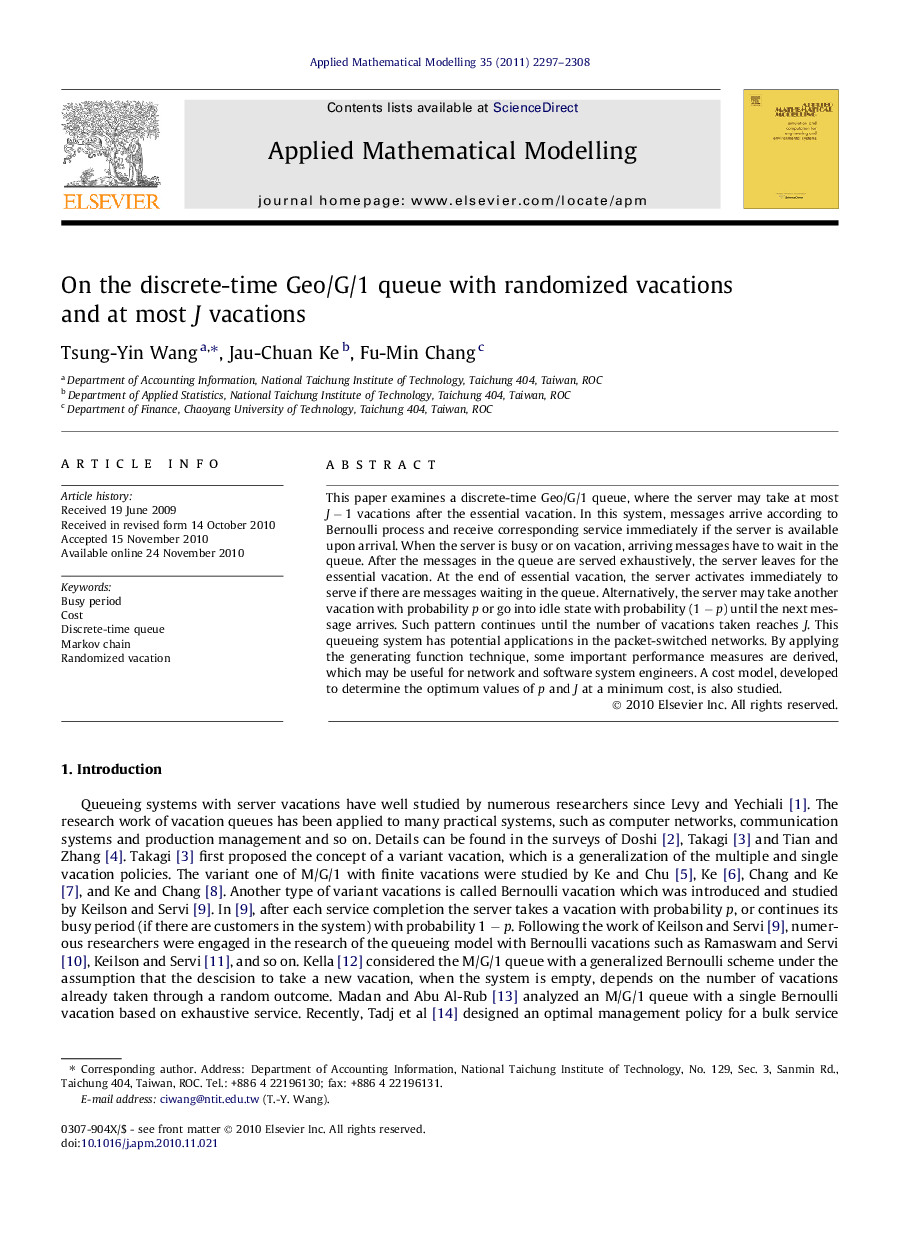| Article ID | Journal | Published Year | Pages | File Type |
|---|---|---|---|---|
| 1705164 | Applied Mathematical Modelling | 2011 | 12 Pages |
This paper examines a discrete-time Geo/G/1 queue, where the server may take at most J − 1 vacations after the essential vacation. In this system, messages arrive according to Bernoulli process and receive corresponding service immediately if the server is available upon arrival. When the server is busy or on vacation, arriving messages have to wait in the queue. After the messages in the queue are served exhaustively, the server leaves for the essential vacation. At the end of essential vacation, the server activates immediately to serve if there are messages waiting in the queue. Alternatively, the server may take another vacation with probability p or go into idle state with probability (1 − p) until the next message arrives. Such pattern continues until the number of vacations taken reaches J. This queueing system has potential applications in the packet-switched networks. By applying the generating function technique, some important performance measures are derived, which may be useful for network and software system engineers. A cost model, developed to determine the optimum values of p and J at a minimum cost, is also studied.
